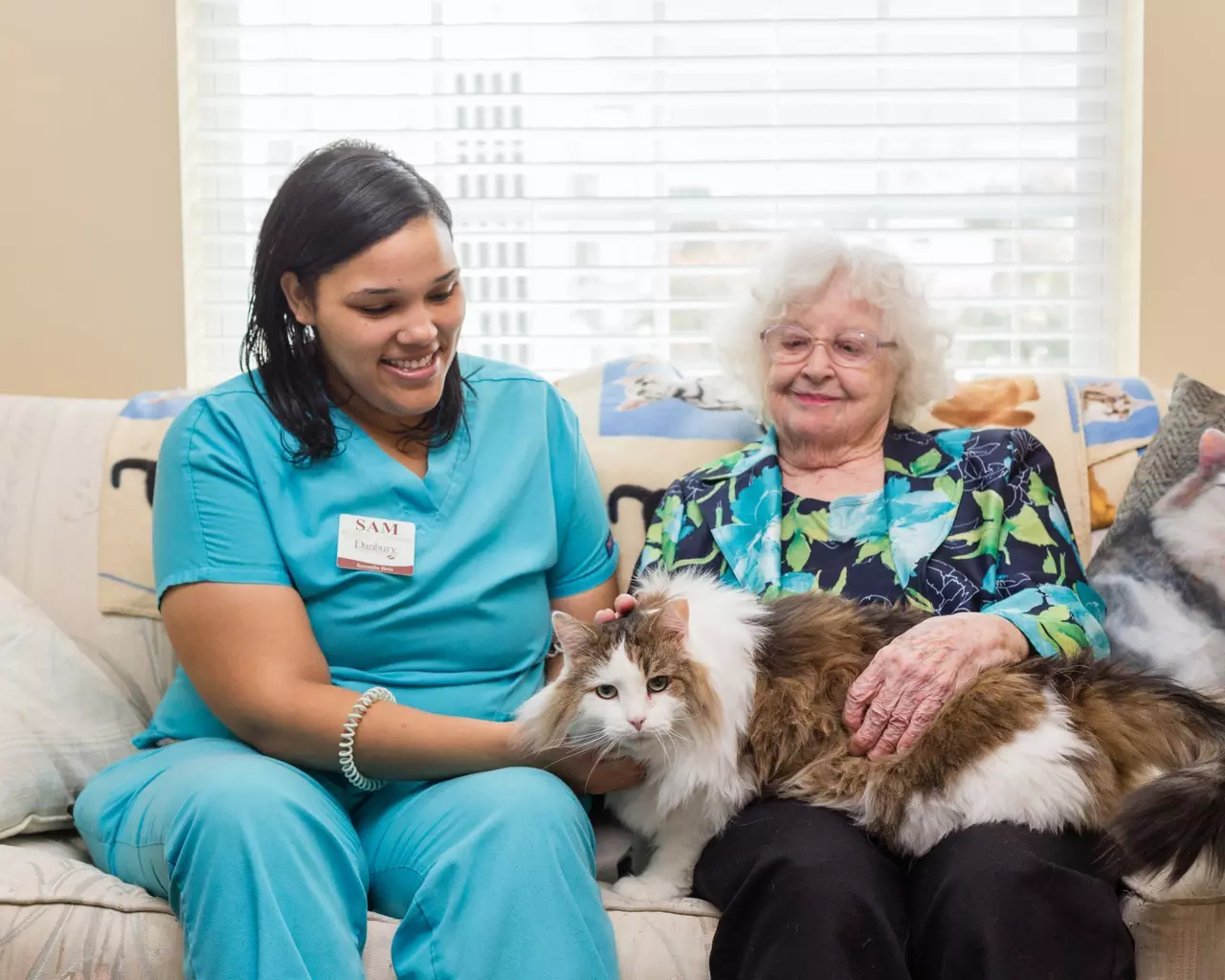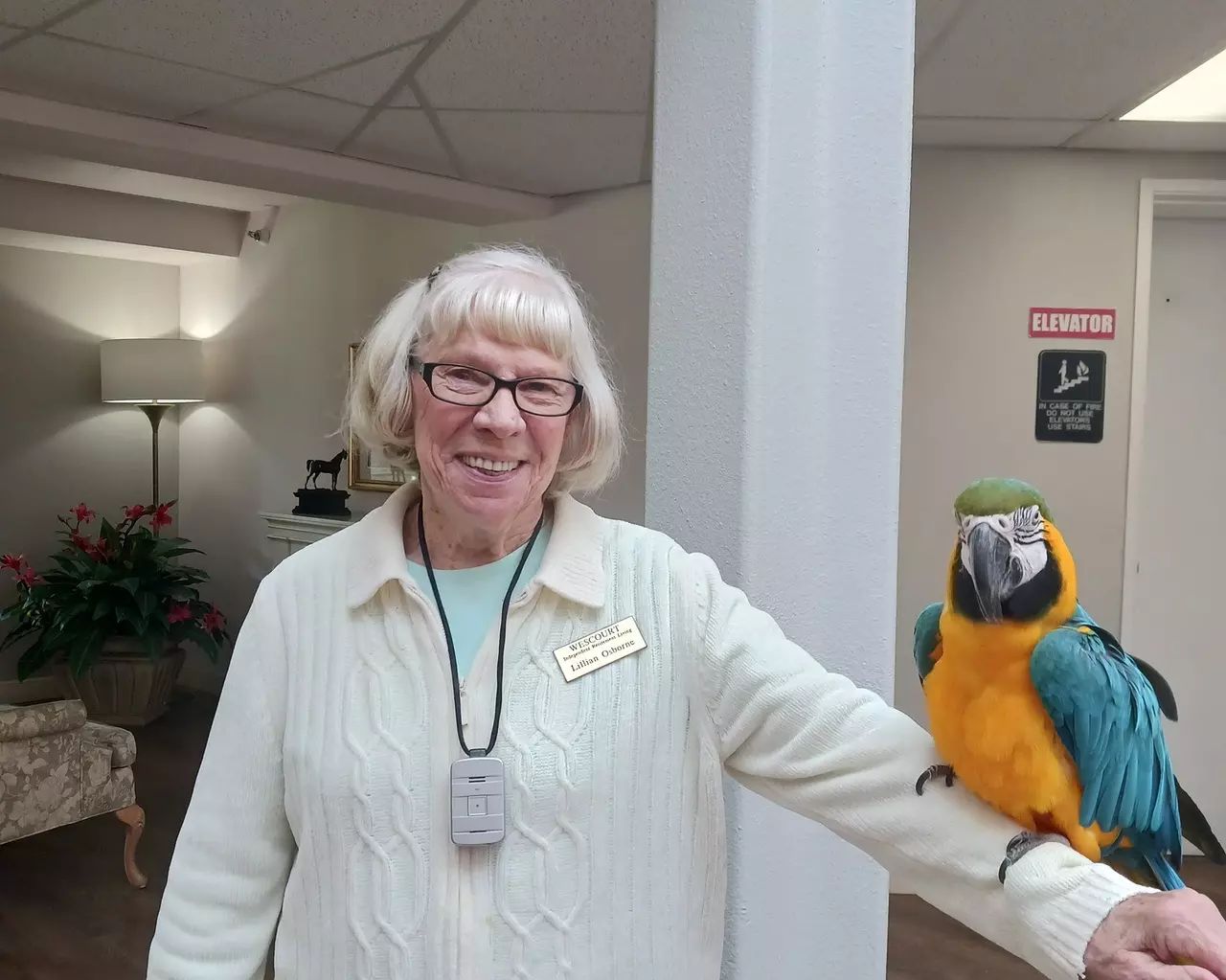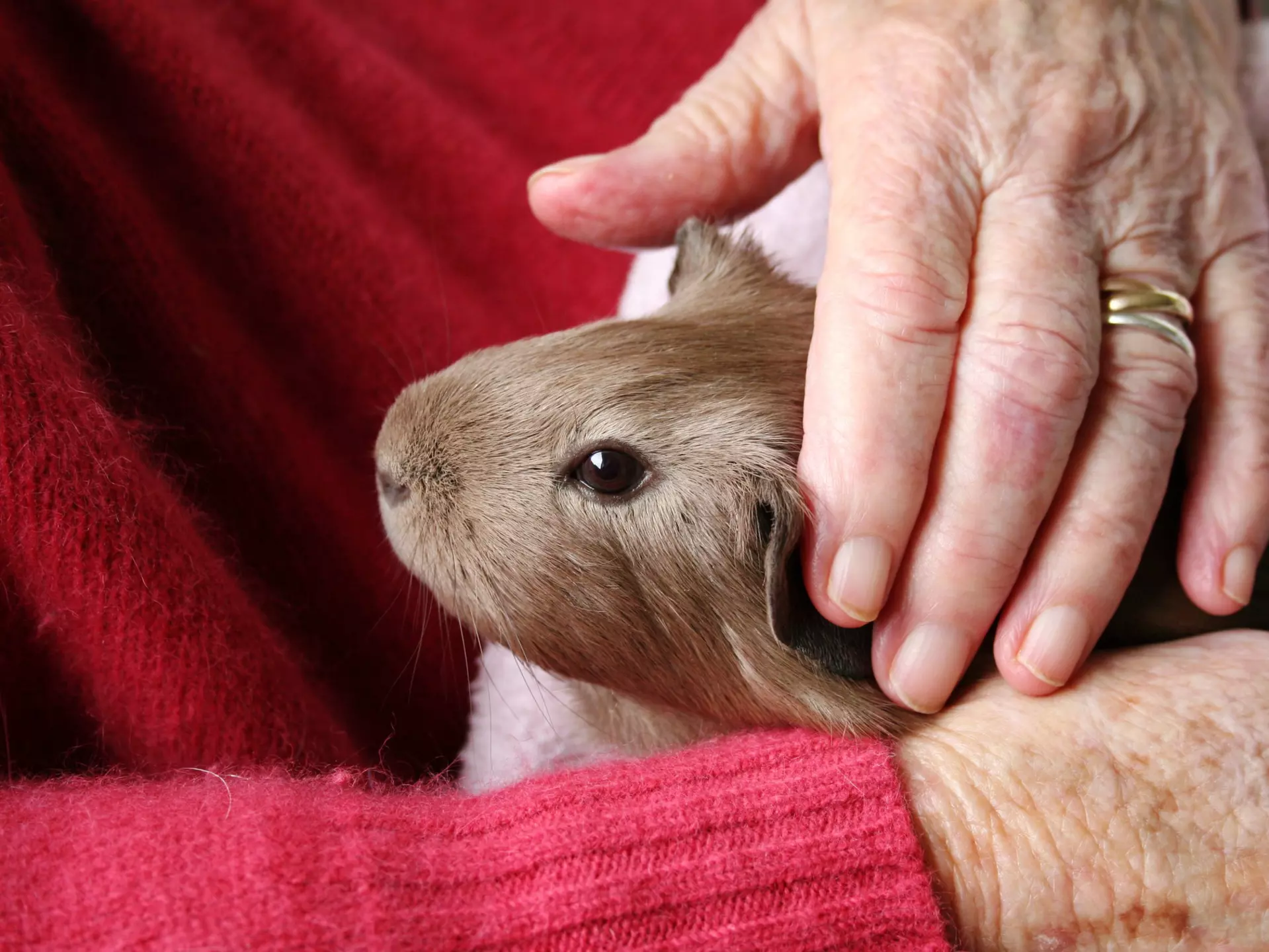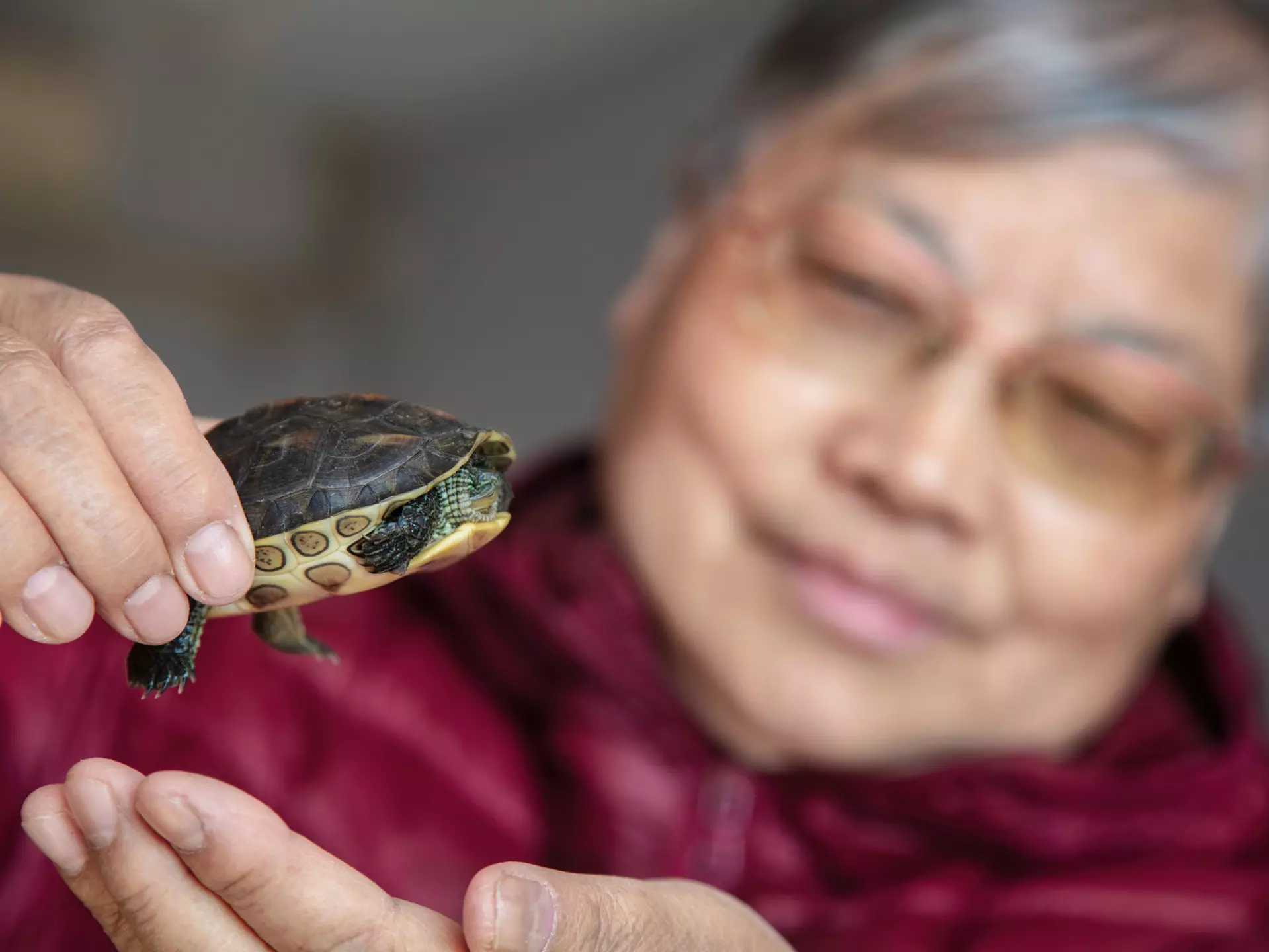Most lifelong pet owners can attest to the joy of having a furry companion. Alongside brightening your mood, owning a pet can also offer tremendous wellness benefits, especially for older adults.
However, some pets are more suitable for seniors than others. So, what are the best pets for seniors, you may ask? In this blog, we’ll explore some great options and helpful tips for choosing the perfect animal companion.
The Benefits of Owning a Pet
If you’ve found yourself searching “What are the best pets for seniors,” an animal friend may likely add some joy and a handful of wellness perks to your already fulfilling life.
Let’s take a closer look at some perks of owning a pet:
- Companionship: Most pet owners share a strong connection with their animal companions. For seniors, having an animal friend nearby can help provide meaningful companionship and combat feelings of loneliness.
- Natural Stress Relief: You might be pleased to learn that owning a pet can come with health perks, too! According to numerous studies, snuggling up with your pet may offer a range of wellness benefits, like helping lower blood pressure and reducing feelings of anxiety.
- Structured Daily Routine: Pet owners often feed, groom, and even exercise with their animal companions. If you have some free time, caring for a pet can offer a grounding daily routine. These activities can add structure and a sense of purpose to your everyday life.
- Boosting Mood: Pets have a special way of cheering people up, especially animal lovers. Whether it’s the wag of a dog’s tail or the soft nudge of a cat, pets can help add moments of joy to a senior’s life.
- Meaningful Way to Connect With Others: Having a pet can also open up natural opportunities to meet new friends. Whether chatting with neighbors during a walk or bonding with other residents, owning a pet can help you form new friendships with other people who share a love for animals.
- Physical Exercise: Looking after a pet can be an excellent way for seniors to get gentle exercise throughout the day. Some typical pet duties may include walking a dog, cleaning a birdcage, or refilling a water bowl. These small movements can help support flexibility and range of motion, which are especially beneficial for older adults.
- Cognitive Benefits: Having a pet can help keep the mind sharp as we age. Research studies have shown that seniors close to their animal companions may experience many cognitive benefits, including better memory, language skills, and overall thinking ability, which tend to naturally slow down as we age.
The Best Pets for Seniors
Adding an animal friend to your life can bring many joys. However, with so many options, you might be wondering: What are the best pets for seniors?
Below, we’ll share some of the most popular and senior-friendly pets, what it’s like to care for them, and a few things to keep in mind before bringing one home:
1. Dogs
Dogs are great companions for most seniors. They can also help you keep active outdoors, especially if you choose a breed that enjoys walks. Small to medium breeds like Cavalier King Charles Spaniels, Shih Tzus, and Pugs are popular dog breeds for older adults because they’re friendly, easygoing, and don’t need large spaces to feel their best. Older dogs can also make great pets since they tend to be calmer and are often already house-trained. However, caring for a dog means daily feeding, regular potty breaks, grooming, and occasional vet visits.
One potential downside to consider is that dogs can be demanding, especially when it comes to bathroom breaks or frequent barking, so they may not be ideal for someone who travels often.

2. Cats
Cats are excellent for seniors who want a calm, low-maintenance pet. Unlike dogs, cats usually don’t need to be walked. Many are content to nap near you, play a little, and quietly go about their day. Cats can be litter-trained, which makes them easier to care for in small living spaces like apartments or condos.
Popular cat breeds for seniors include the Ragdoll, British Shorthair, and Burmese. They’re gentle, cuddly, and well-suited for older adults. Cats need regular feeding, fresh water, a clean litter box, and occasional grooming. Long-haired breeds may shed more and require a bit more frequent brushing and combing.
While most cats are fairly independent, they still love attention and some playtime with their owners. If you’re thinking about getting one, it’s often a good idea to adopt an adult cat rather than a kitten, since they’re usually calmer and already litter-trained.

3. Fish
Fish are one of the most popular pets for seniors. They’re a beautiful addition to any senior’s home, and watching fish swim can help ease stress and combat feelings of stress and anxiety.
For older adults or beginners, freshwater fish like bettas, guppies, or goldfish are great choices because they’re relatively hardy and require less upkeep than saltwater varieties.
A potential drawback is that fish aren’t interactive in the same way as four-legged companions. In addition, cleaning a fish tank or aquarium might be a challenge for someone with limited mobility or vision challenges.

4. Birds
Birds are social, colorful, and some species can even talk. They’re ideal for seniors who enjoy gentle, playful interaction and the sound of birds indoors. Smaller types like canaries, macaws, or cockatiels are popular choices for older adults. Birds usually don’t take up much space, and many are happy to perch on your finger or shoulder once they trust you.
Birds are also manageable for many seniors. Tasks include cleaning the cage and providing fresh water and food. One thing to consider is that birds can be noisy at times, and some species, like parakeets (budgies), may need more socialization than others.

5. Rabbits
Rabbits are gentle and surprisingly affectionate once they bond with you, making them wonderful companions for older adults. They’re also generally quiet and can even be litter-trained, which is helpful if you live in a small apartment. Breeds like the Mini Rex, Holland Lop, or Lionhead are usually ideal for seniors due to their friendly nature and manageable size.
To keep your bunny happy, you’ll need a roomy cage, daily fresh hay, vegetables, clean water, and a safe space for exercise. However, rabbits are delicate animals and can become sick easily if not properly cared for.

6. Small Mammals
Small mammals, like hamsters and guinea pigs, can be great options for seniors who enjoy interactive and playful pets. Since they typically don’t need to be walked, they’re a good fit for someone with mobility challenges.
Their biggest downside is that they tend to be more active at night, which might not suit seniors who prefer quiet evenings or have difficulty feeding them and keeping their cage clean.

7. Turtles
Turtles are good animals to have as pets for someone who wants a low-maintenance pet that can last them a lifetime. Aquatic turtles like red-eared sliders or box turtles are great choices for seniors and often live a long time if cared for properly. Keep in mind, though, that turtles need a clean, temperature-controlled tank with dry basking areas. They also require a diet that includes pellets, leafy greens, and protein like small insects or fish.
While turtles are less cuddly compared to other pets on our list, many enjoy watching their humans and can even recognize feeding times. One downside is that turtles need specific habitat conditions to stay healthy, and their tanks require regular cleaning, which may be tricky for some seniors.

How to Choose the Right Pet
If you’re thinking about owning a pet, you might be asking important questions like, What are the best pets for seniors? The truth is, there’s no one-size-fits-all answer. The right pet for you is one you enjoy being with and can care for comfortably.
Here are some important things to keep in mind when choosing an animal friend:
Personality and Compatibility
Just like us, pets have their own personalities. When choosing an animal companion, do some research and spend time with them beforehand to make sure they’re a good match for you.
Living Situation
Pets come in all shapes and sizes, and larger animals often need more space to live and move around. When choosing a pet, consider whether your home has enough space for it. A smaller pet might be a better fit for seniors who live in apartments or smaller homes. If you live in a community, you may want to ask if they allow pets and whether there are any specific rules or policies.
Grooming Needs
Pets often require grooming tasks like brushing, bathing, or nail trimming. If frequent grooming is a concern, consider low-maintenance options or explore professional grooming services.
Existing Limitations
It may also be helpful to consider any disabilities or limitations you have. For example, if you have difficulty moving around, smaller, lower-maintenance pets like birds or fish might be a better fit.
Safety
Aggressive animal breeds are generally not ideal for older adults. When choosing a pet for an older person, it’s often best to prioritize gentle animals that are safe for everyone.
Financial Resources
Pets come with ongoing expenses like food, grooming, and vet visits. Before getting an animal friend, it’s crucial to ensure your budget can comfortably cover their needs.
Potential Allergies
Some pets can be more problematic for seniors with allergies than others. If you have any allergies, consider choosing a breed that’s less likely to trigger them, such as less allergenic dog breeds.
Commitment
Owning a pet is a long-term commitment. As such, it’s important to be well prepared to look after your pet throughout its entire lifespan and have a backup plan in case you’re no longer able to care for it.
FAQs and Concerns About Pet Ownership
If you’re thinking about getting a pet, it’s completely natural to have questions and concerns, especially if it’s your first time. We’ll answer some common questions that many seniors ask about pet ownership:
Pet-Friendly Living With StoryPoint Group Communities
At StoryPoint Group communities, we understand the profound joy that a furry companion can bring, especially for older adults. That’s why many of our communities across the country are proud to welcome residents and their animal friends so they can continue their journey side by side.
If you or a loved one could benefit from additional support services, we’re here to help guide you through the next steps.
To learn more, call 1-844-275-9990 or schedule a tour at a StoryPoint Group community near you. We can’t wait to welcome you and your pet pal!












